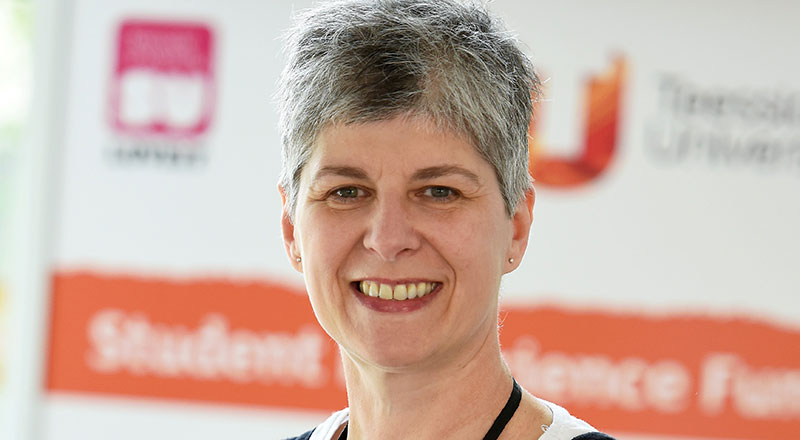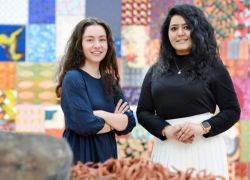Teaching the teachers – tackling childhood trauma through education
A Teesside University lecturer is drawing on her own difficult childhood to train people to help children facing adversity and trauma.

Lynn Miles, Lecturer in Education in the School of Social Sciences, Humanities & Law, grew up facing real hardship in her home life. As a child, she was disruptive and didn’t know how or where to get help, but thanks to some understanding adults in her life, she learned coping strategies and skills to deal with her emotions and ultimately made it through school.
'As a child, I was often violent and unpredictable. I used to throw desks, books and chairs – but my PE teacher taught me to go for a run or throw javelin instead as a way of channelling my strength and anger. Fortunately, I had a few perceptive teachers who didn’t blame me for my challenging behaviour and realised something else was going on. Had it not been for them, my life would have been very different,' said Lynn.
Sadly, half the children in the UK will suffer an adverse childhood experience (ACE) – including emotional, social and physical abuse, often perpetrated by someone at home – and 10 per cent will endure four or more of these experiences by the age of 18.
Lynn is a passionate advocate for children’s wellbeing and she has developed a unique new course, MA Education (Trauma Informed Practice), to help improve the lives of children through those who work with them. The course helps people to understand the impact of childhood trauma on children’s mental and physical health, then develop the skills to support them to survive and thrive both in their education and future.
Aimed at teachers, social workers, youth workers and anyone who works with children, the course is believed to be the only one of its kind in the country and Lynn hopes that greater awareness will play an important role in shifting attitudes.
'Trauma is a huge issue for children who are growing up in poverty or suffering abuse and neglect. But there is still a misconception among some that children who are disruptive or misbehaving in school are simply ‘naughty’ children, when in fact they are facing issues that they simply don’t know how to deal with. By acting out, children are really asking for help,' said Lynn.
Children who face abuse or neglect at an early age are impacted for the rest of their lives, but our education system isn’t yet set up to deal with this.
'It is important that people who work with children understand the huge impact ACEs and trauma have on children’s social, emotional, neurological, sensorial, physiological, moral and cognitive development. And all of this affects their ability to learn.'
Research shows that those who experience adversity in childhood are more likely to perform poorly in school, develop anti-social and health-harming behaviours, be involved in crime, and suffer poor mental and physical health.
Lynn still feels the impact of her traumatic childhood now and says that she is often exhausted from managing the consequences of the early years of her life. Fortunately, she has developed a range of practices and strategies that allow her to do well on a daily basis, but it hasn’t been easy.
'People often don’t realise the long-term effects of ACEs and trauma on a child. Even now I can struggle with new people, changes to my routine and unexpected requests, as to me it can feel threatening – even if it is not,' Lynn explained.
'Children who face abuse or neglect at an early age are impacted for the rest of their lives, but our education system isn’t yet set up to deal with this. These children often think they are not worthy, so with ‘zero tolerance’ policies and by punishing these children, schools can exacerbate their trauma.
'Our society is creating stressed and distressed children. This course teaches the teachers how to help children manage their own stress in the classroom and in life. I’m now in a fortunate position to be able to share my knowledge and experience with education professionals, so between us we can help as many children as possible.'
MA Education (Trauma Informed Practice) is available to study at Teesside University from September 2019. Continuing professional development is also available at the University - please see the links below for further information.
 Teesside University academics join prestigious network of
...
Teesside University academics join prestigious network of
... Curatorial studies culminating with international art
...
Curatorial studies culminating with international art
... Teesside animation graduates receive top regional Royal
...
Teesside animation graduates receive top regional Royal
...